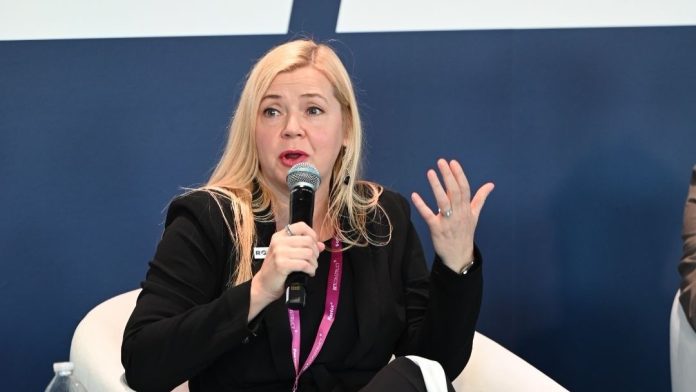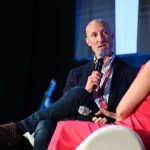Does responsible gambling have an identity problem? And if so, is that identity problem holding it back?
At the SBC Summit North America Player Protection Symposium, experts suggested the answer to both questions is yes.
“In the U.S., many people don’t engage with responsible gambling because it’s associated with problem gambling,” said Responsible Online Gaming Association (ROGA) Executive Director Dr. Jennifer Shatley in a panel session entitled Conscious Commerce: The Interplay of Branding & RG.
“They think ‘I’m not a problem gambler, I don’t need these tools.’ But it’s for every single customer.”
Shatley and her other panelists, the Ontario Lottery and Gaming Corporation (OLG)‘s Director of Policy, Research and Strategy Aaron GlynWilliams and Kindbridge Behavioural Health CEO Daniel Umfleet, stressed that removing those misunderstandings and that stigmatization of responsible gambling is critical to improving the health of all players and the industry on the whole.
“It’s about prevention,” added Shatley. “Teach and engage with players and stop it from becoming a problem.”
That’s harder than it sounds, but a key message from the experts was that integrating player protection tools directly into the pre-existing player experience is one way of bridging the gap.
The OLG, for instance, calls its set of responsible gambling toolkit PlaySmart. GlynWilliams explained that one of its primary goals has been to present that program as what it is: part of the wider player experience package rather than a separate strand of operation.
“RG informs our efforts across every platform,” GlynWilliams told attendees. “We try to ensure this is a de-stigmatized, part-of-the-fun tool. Evaluating the impact of individual components of your program is something that any operator in the room is likely struggling with. It comes down to finding the right time to present the tools to the player and making sure the messaging is right and effective to drive the results you want to see.”
One size doesn’t fit all for RG messaging
Delivering that message is not easy.
GlynWilliams noted that the greatest successes in responsible gambling and preventing gaming harm have come through boxing it up correctly and presenting it to the right people at the right times. That’s not only problem gamblers and not even only customers. Responsible gambling should permeate sports betting operators internally among their own employees as well as being pushed externally to players.
In many ways, that comes down to the branding. It’s important not only to engage customers proactively but also to market responsible gambling to the same audience as they do their products.
“Make it fun, make it activating,” implored GlynWilliams.
“Operators are very good at marketing the product itself,” Shatley noted. “So, let’s extend that same strategy to responsible gambling. Don’t think of it as a compliance program, think of it as a marketing and a customer service component. That can improve efficacy and sustainability. The big question is how do you market these tools to make the uptake just another part of the experience?”
Knowing how to speak the right language is one of the cornerstones. That’s where technologies such as data analytics and AI-assisted messaging can come into play. Those tools can not only help spread the message but personalize it, too.
“We’ve seen that passive approaches to responsible gambling see a decline in engagement with your program,” added GlynWilliams. “What are the most effective calls-to-action that are going to reduce the risk of harm? Player education campaigns and messaging, yes, but personalization is vital. One-size-fits-all doesn’t work. It probably never did.”
Gaming operators can benefit from collaboration
Within the industry, people seem willing to work together to change the state of play.
Shatley is the executive director of ROGA, a newly formed union of seven sports betting industry giants: BetMGM, bet365, DraftKings, Fanatics Betting and Gaming, FanDuel, Hard Rock Digital and PENN Entertainment. She noted that each of those operators have their own robust responsible gambling measures. But the true strength is in unity.
Ultimately, it’s a joint effort. That involves state and provincial lottery corporations sharing learnings with one another, sportsbooks being willing to hear out one another and media and affiliates coming on board.
“The industry has progressed and RG has progressed,” Shatley added. “Driving it through research and best practices and tracking results through iterative processes. The key is understanding that collectively, you can have a bigger voice. At ROGA, we have seven operators who are all doing their own things but they understood collectively that we can do so much more together.”
Sports betting is also increasingly finding its place within a positive healthcare discussion. There’s an acknowledgment that with the commitment of operators, the right messaging and external support, real change can be made.
“The identification process runs through every type of business in every industry,” said Umfleet. “Player protection is a shared responsibility across them all.”
Kindbridge works with numerous partners in the betting and gaming industry, including major operators such as DraftKings and BetMGM. Umfleet says the company has seen heartening enthusiasm from betting titans when it comes to better protecting players.
From the operator’s end, GlynWilliams acknowledged that the path to a more responsible industry also involves supporting other organizations and initiatives.
“You can have a really great program as an operator but those supports in your community are where the really great work is done,” he added. “It requires continuous evaluation and research. This is just not something you can do on your own.”
Umfleet noted that the more relationships that can be developed and the more inroads that can be made, the more individuals reach out for help. From that will come more progress.
“I’m starting to see an innovative space where both operators and healthcare are very interested in starting a conversation across the country, which I think the country is desperate for,” he added. “Over the next five years, I expect we’re going to see an explosion of innovation in this space and some really cool stuff. We’re already starting to see it.”














